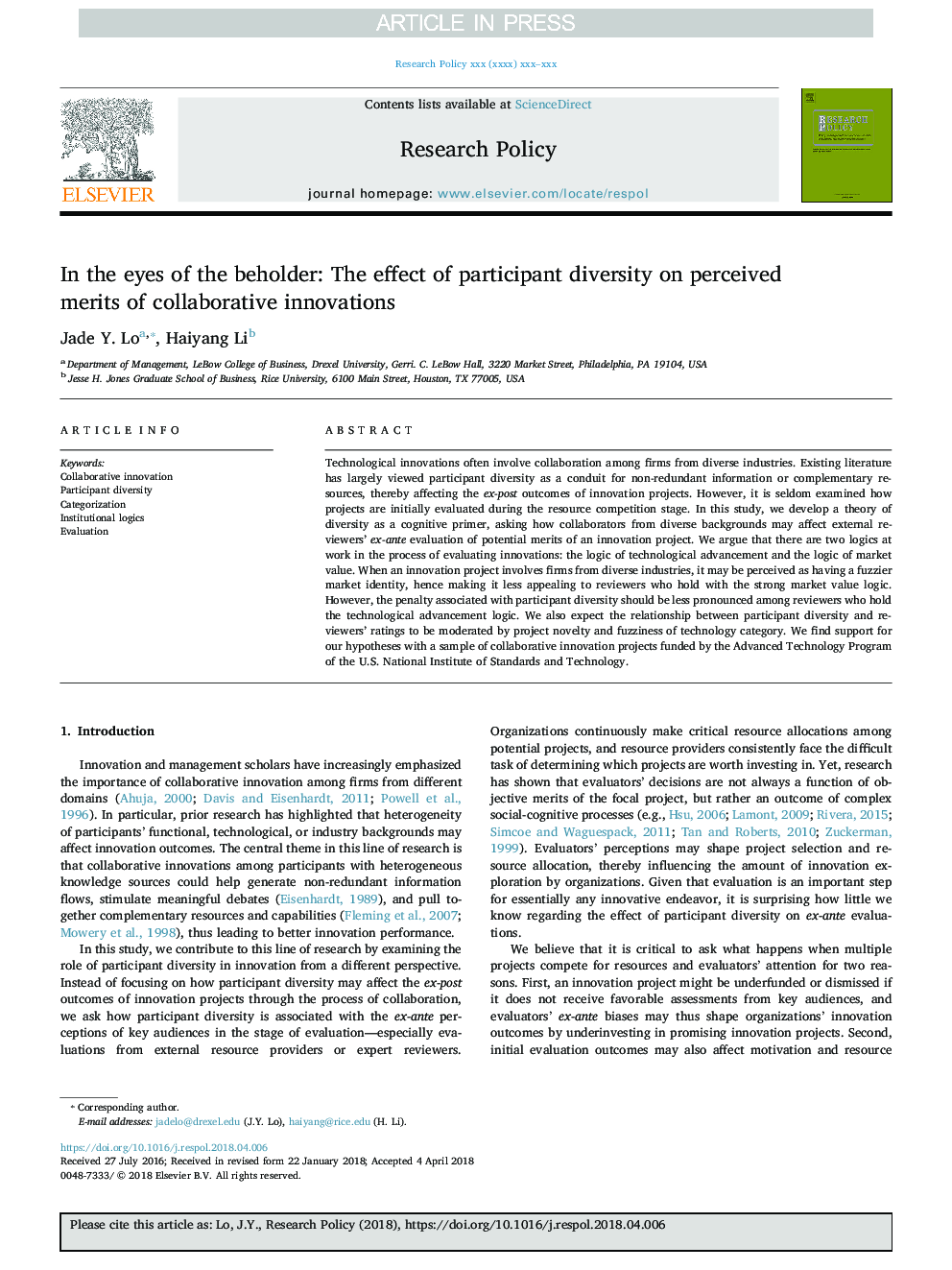| Article ID | Journal | Published Year | Pages | File Type |
|---|---|---|---|---|
| 7384294 | Research Policy | 2018 | 14 Pages |
Abstract
Technological innovations often involve collaboration among firms from diverse industries. Existing literature has largely viewed participant diversity as a conduit for non-redundant information or complementary resources, thereby affecting the ex-post outcomes of innovation projects. However, it is seldom examined how projects are initially evaluated during the resource competition stage. In this study, we develop a theory of diversity as a cognitive primer, asking how collaborators from diverse backgrounds may affect external reviewers' ex-ante evaluation of potential merits of an innovation project. We argue that there are two logics at work in the process of evaluating innovations: the logic of technological advancement and the logic of market value. When an innovation project involves firms from diverse industries, it may be perceived as having a fuzzier market identity, hence making it less appealing to reviewers who hold with the strong market value logic. However, the penalty associated with participant diversity should be less pronounced among reviewers who hold the technological advancement logic. We also expect the relationship between participant diversity and reviewers' ratings to be moderated by project novelty and fuzziness of technology category. We find support for our hypotheses with a sample of collaborative innovation projects funded by the Advanced Technology Program of the U.S. National Institute of Standards and Technology.
Related Topics
Social Sciences and Humanities
Business, Management and Accounting
Business and International Management
Authors
Jade Y. Lo, Haiyang Li,
